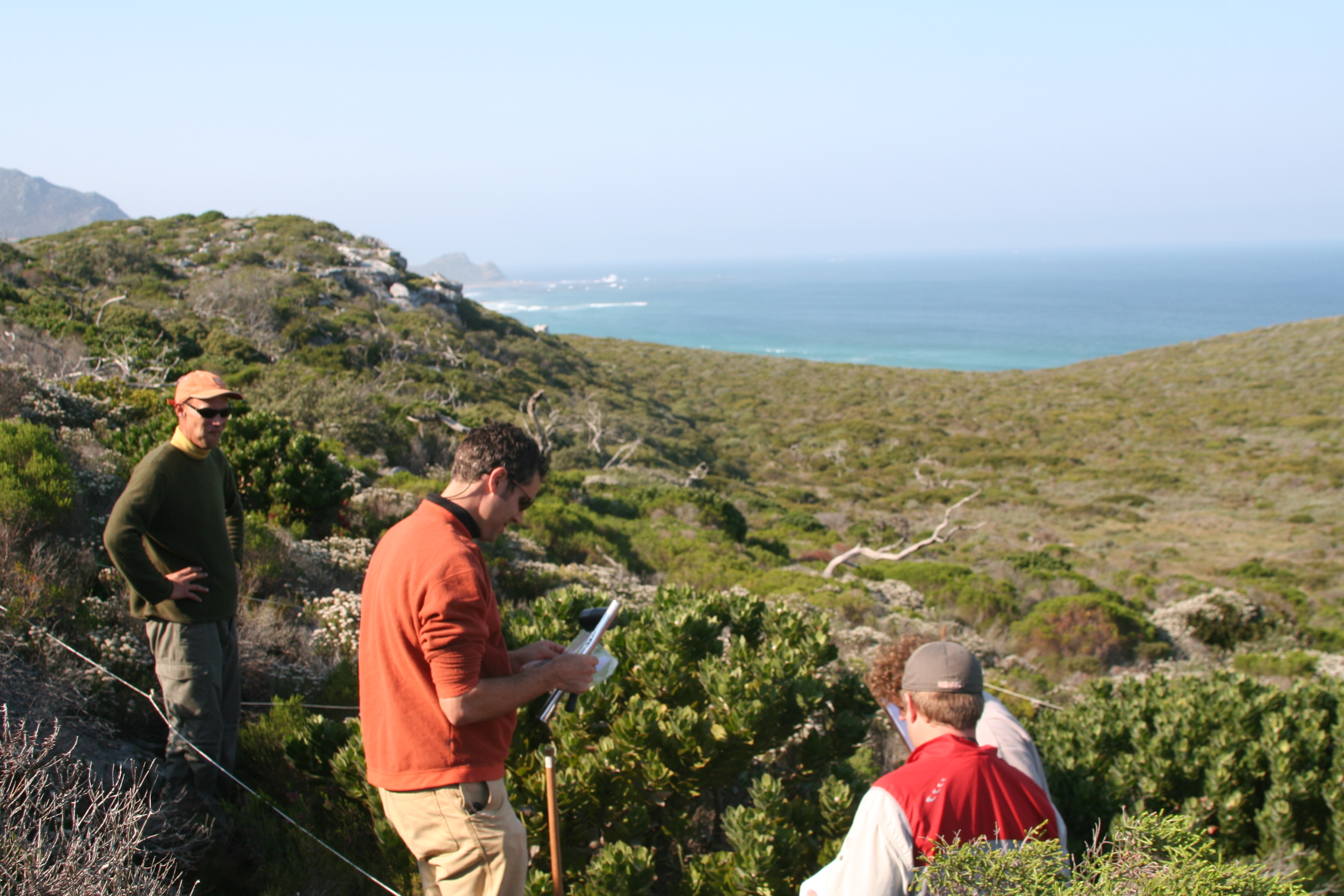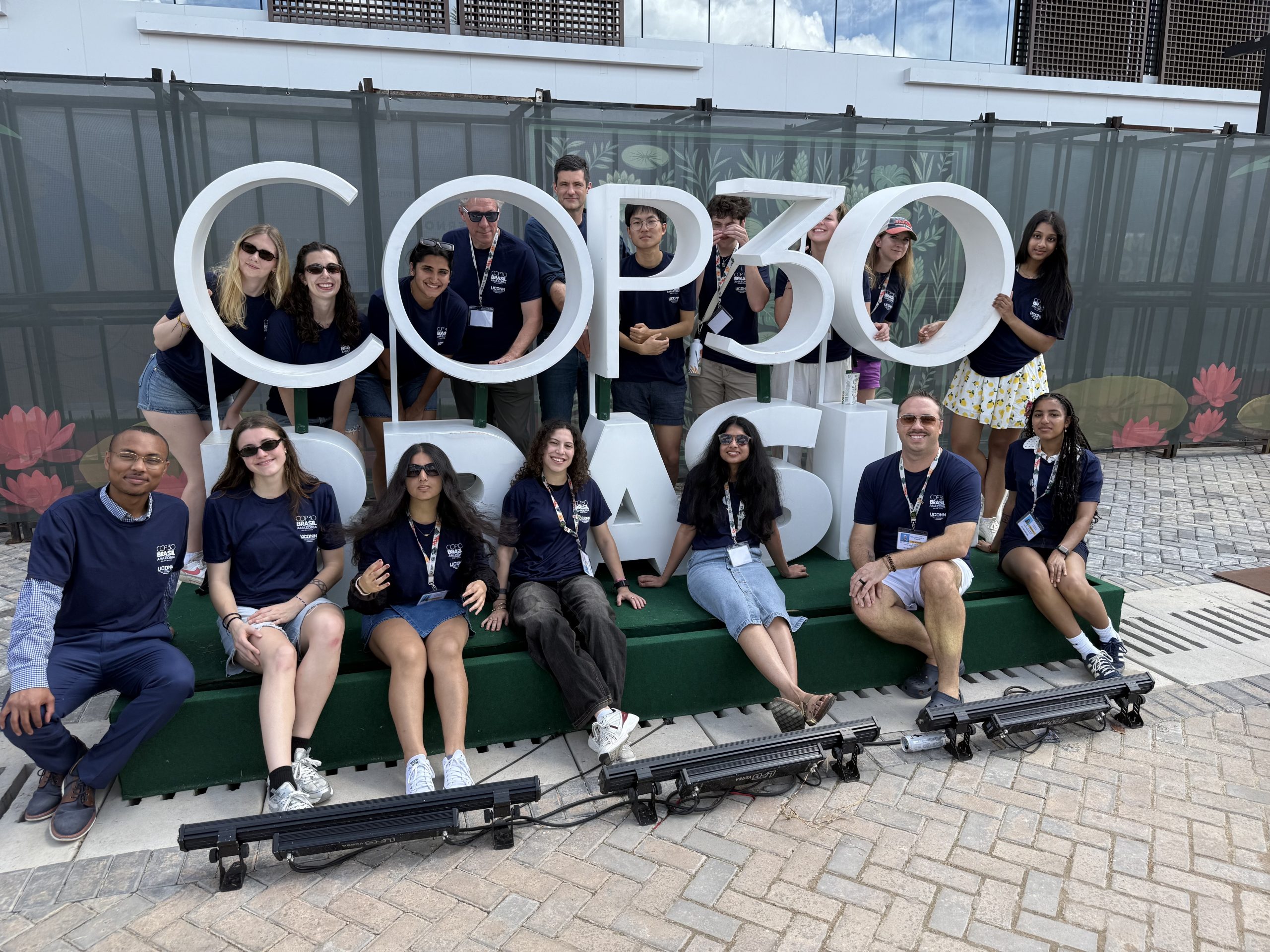
Increasingly prolonged periods of severe hot and dry weather during the first summer after wildfires are inhibiting vegetation recovery and causing loss of plant diversity, according to a new international study on climate change.
The importance of fire in sustaining and even enhancing natural systems has long been known, but the cycle of regeneration is being negatively impacted by climate change, say the researchers.
The 44-year study of shrubland vegetation in South Africa – one of the most biologically diverse regions of the world – was led by researchers from four U.S. and four South African institutions. Ecology and evolutionary biology professor John Silander partnered with students and others associated with his lab at the University of Connecticut to launch the retrospective study in 2010.
They found species diversity declined in the study area, the Cape of Good Hope section of the Table Mountain National Park, because of progressively longer periods of consecutive hot and dry days, along with the legacy impact of invasive species. The increase in these extreme weather patterns over the past half-century suggests that opportunities for successful regeneration of vegetation will become increasingly rare.
“The increasing bottleneck that extreme weather places on the post-fire regeneration phase may compromise the stability of plant populations,” noted the authors.

“Climatic variability may continue to provide years sufficiently benign to allow successful recruitment, but many species in ecosystems that regenerate the first year after a fire event – most species in our study – are subject to a form of climactic Russian roulette,” said Jasper Slingsby of the University of Cape Town, lead author and a former postdoc in Silander’s lab. “Unfortunately, as climate change intensifies, there are fewer empty chambers in the gun.”
The exacerbation of this post-fire mortality by increasingly severe weather extremes is likely to drive major shifts in the composition, structure and fire-prone ecosystems, according to the researchers.
The findings, published in Proceedings of the National Academy of Science, are a concern for fire-prone ecosystems around the world, including regions of the United States such as California, along with forest areas of the West and Southeast.
The study represents one of the few examples of climate-driven diversity loss in natural communities. It demonstrates an important interaction between climate change and disturbance by fire that suggests flammable ecosystems may be particularly sensitive to climate change.
Silander will lead an expedition to South Africa late this summer with UConn alumni, among others, that will focus on conservation and threats to biodiversity in that region.
The research was supported by the National Science Foundation, the National Aeronautics and Space Administration, and the National Research Foundation of South Africa.
In addition to Silander and Slingsby, researchers include Nicky Allsopp of the South African Environmental Observation Network; Cory Merow of Yale University; Matthew Aiello-Lammens of Pace University; Stuart Hall of Stellenbosch University, South Africa; Hayley Kilroy Mollmann of UConn; Ross Turner of the University of KwaZulu-Natal, South Africa; and Adam Wilson of University at Buffalo.



